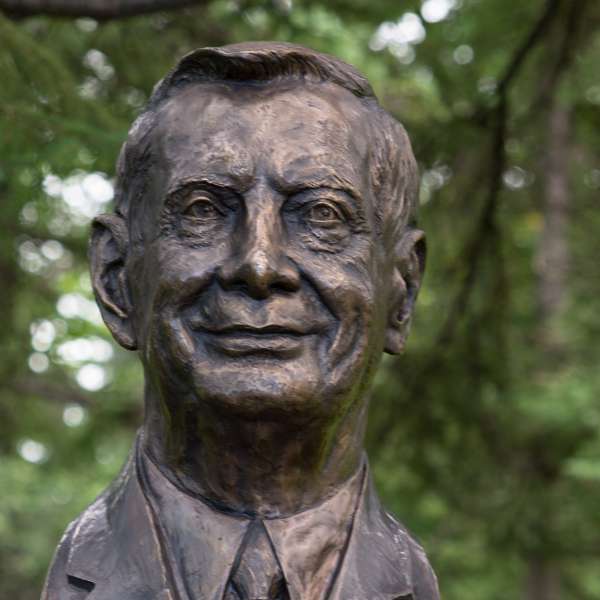Medical Research - Infectious Disease
Where do you start when it comes to dedicating your career to one of the highest callings possible – medicine!
More accurately, for Dr. Allan Ronald, it went beyond his initial medical training to become a physician. Add total immersion and years of dedication to medical science through his teaching, research and administration – and, of course, his choice to specialize in microbiology and infectious diseases.
One real delightful development which must give Dr. Ronald so much satisfaction is the recent success Winnipeg’s National Microbiology Laboratory has had with its work on the Ebola vaccine. His earlier and seminal work internationally treating HIV/AIDS in Africa played a part in bringing the infectious disease laboratory to Winnipeg. And now Africa, a continent where Dr. Ronald committed many years of time and research to manage and control infectious diseases, is the epicentre of another deadly disease and Winnipeg is garnering international attention for efforts to help prevent its spread.
Part and parcel of his passion and tremendous dedication was training a cadre of experts on infectious diseases. Many have gone on to do groundbreaking work such as the likes of Dr. Frank Plummer, former director of Winnipeg’s National Microbiology Laboratory.
Here are some indicators of a person who took their profession to the highest level:
Dr. Ronald had a major impact on advancing HIV/AIDS prevention programs in Africa as the creator of the University of Manitoba’s world-renowned infectious disease research program. This included setting up a very important research training centre in Nairobi, Kenya, where the U of M/University of Nairobi team made major discoveries to prevent HIV infection.
As colleague Dr. Stephen Moses said when he was inducted into the Canadian Medical Hall of Fame, “Long after his retirement, should that ever really occur, the programs and systems that he has pioneered will remain as models for what can be achieved in a complex and challenging environment.”
Fellow Manitoban and Canadian Medical Hall of Fame laureate Dr. Henry Friesen added, “ His crowning achievement is the collaborative effort he initiated and nurtured with his Kenyan colleagues in the joint University of Manitoba/University of Nairobi research program that has put Manitoba and Canada in the forefront of HIV/AIDS research globally”.
One of the foremost physicians and microbiologists in the country, Dr. Ronald trained over 75 physicians in the infectious disease unit at the U of M’s Faculty of Medicine. Many of them hold leadership positions in Canada and internationally as a result of the outstanding educational and research program Dr. Ronald developed at the U of M.
He has also received 42 awards and honours from national and international organizations.
Some of the more prestigious awards include the Order of Canada, Order of Manitoba, induction into the Canadian Medical Hall of Fame, FNG Starr Award from the Canadian Medical Association (CMA), honourary doctorates from other universities and the Gairdener Foundation Wightman Award. The FNG Starr Award is the highest honour CMA bestows to recognize outstanding achievement and only one is given out each year. It was first given in 1936 to Sir Frederick Banting.
Most significant in Dr. Ronald’s contribution to Winnipeg is his leadership and pivotal role in paving the way for the selection of Winnipeg as the site of the National Microbiology Laboratory (NML). NML is already gaining world-wide recognition for Winnipeg as a result of key undertakings on identifying the SARS virus and development of an Ebola vaccine long before the outbreak in West Africa.
In addition, his earlier years brought attention to Winnipeg through his work on HIV/AIDS research in Africa. From an economic point of view, the installation of a major national laboratory in our city has made a major impact as has his ability with his fellow colleagues to attract up to $200 million (includes $150 million from the Gates Foundation) in research grants.
Not one to rest on his laurels, Dr. Ronald went on to set up a complete HIV/AIDS care and prevention program in Uganda after retiring from the U of M.

